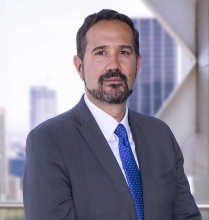International Arbitration Newsletter - June 2019 | Regional Overview: The Americas
The most relevant updates of The Americas from the global International Arbitration and ADR practice group at Garrigues.
Argentina
ICSID award upheld against Argentina in airline dispute
An ICSID annulment committee has upheld an award in favour of Teinver and two other insolvent member companies of Spanish travel group Marsans that requires Argentina to pay US$320 million for nationalising two airlines The award was issued in 2017, upholding the Marsans companies’ claims that the 2008 nationalisation of their interests in Aerolíneas Argentina and its sister airline Austral violated the Spain-Argentina bilateral investment treaty.
Argentina filed for annulment of the award in November 2017, alleging among other things that the claimants’ funding agreement with Burford Capital made the venture capital group the main beneficiary of the proceeds of the award, which it said was “an abuse of the ICSID system.
In its decision on annulment, the ad hoc committee held that Argentina had not identified any fundamental procedural rule incompatible with the financing agreement, nor demonstrated why that agreement would constitute improper or abusive control of the case by Burford Capital. The committee also rejected Argentina’s suggestions that the tribunal had displayed a manifest excess of powers through its conclusion that the Marsans companies’ indirect investments in Argentina were protected under the BIT.
BRAZIL
US Court confirms ICDR award against Petrobras
The US District Court for the Southern District of Texas has confirmed a US$728 million award in favour of offshore drilling contractor Vantage Drilling against Petrobras – rejecting the Brazilian state oil and gas company’s arguments that the tribunal overlooked evidence of bribery and that one of the member´s of the tribunal showed “open hostility” during the hearing.
Vantage obtained the award in June 2018r from a Houston-seated tribunal administered by the American Arbitration Association’s International Center for Dispute Resolution (ICDR).
The underlying dispute concerned a long-term contract for the lease of a deepwater drilling ship, which Petrobras terminated in 2015 in the wake of revelations that Vantage’s agent in Brazil had entered into a plea agreement with Brazilian authorities over his role in obtaining bribes for former Petrobras executives.The agent, Hamylton Padilha, told authorities that he and a former Vantage director, Hsin Chi Su, had taken part in a scheme to pay US$31 million in bribes to former Petrobras directors for the contract to be awarded to Vantage.
PANAMA
Panamanian Supreme Court annuls award against non-signatories
The Panamanian Supreme Court has partially annulled an award in favour of Ecuadorean Manta Port Puthority that held two affiliates of Hong Kong-based port services group CK Hutchison Holdings liable under a concession contract that they had not signed.
The court held that, with its award, the arbitration tribunal, administered by the Quito Chamber of Commerce, exceeded its powers when it held two non-signatory subsidiaries, Cayman entity Hutchison Port Investments and the latter’s parent company, British Virgin Islands-based Hutchison Port Holdings jointly and severally liable for the early termination of the contract. The award remains valid as against a third, now-insolvent Hutchison entity TIDE that was a signatory to the underlying concession contract of 2006 to modernise and operate the port of Manta on Ecuador’s Pacific coast.
Uruguay
Uruguay faces claim from Tenor Capital Management in airline dispute
Panamanian entity Latin American Regional Aviation Holding (Larah) backed by New York private equity firm Tenor Capital Management has filed an ICSID claim against Uruguay under 1998 Panama-Uruguay bilateral investment treaty over the renationalization and collapse of the country’s former national airline Pluna.
The dispute goes back to 2007, when Uruguayan private equity fund Leadgate, a subsidiary of Larah, acquired a 75% stake in the airline as part of a US$15 million deal. The government retained the remaining 25%. In 2012 the airline – which sold half of its tickets out of Buenos Aires – encountered financial difficulty as a result of Argentina’s currency crisis and that country’s decision to subsidise fuel costs for its national airlines. It also suffered major disruption caused by the eruption of Chile’s Puyehue volcano, and in 2012 the airline was forcibly sold to a government-owned trust and subsequently placed into bankruptcy.
Larah accuses the Uruguayan government of creating unnecessary liquidity problems for Pluna and arbitrarily rejecting additional credit lines. Larah also says that Pluna, its shareholders and its senior executives faced a state campaign of public harassment that made it impossible to attract financing – eventually resulting in the arbitrary imprisonment of three Argentine executives of Leadgate on suspicion of fraud in 2013.
VENEZUELA
Venezuela defeats treaty claim from Clorox España
An UNCITRAL tribunal has declined jurisdiction over a US$185 million investment treaty claim brought by Clorox España, a Spanish subsidiary of US cleaning products group Clorox, against Venezuela brought under the Spain-Venezuela bilateral investment treaty.
The tribunal unanimously found that Clorox España did not have a protected investment under the Spain-Venezuela bilateral investment treaty, since it had not proven it had invested in its Venezuelan subsidiary beyond merely acquiring its shares as a result of a group restructuring.
The dispute concerned the claimant’s alleged investment in Clorox Venezuela, which manufactured and sold a variety of cleaning products in the country. The company closed its production facilities in 2014, saying the government had taken a series of measures which “annihilated” the value of its business, including freezing the prices of products that accounted for 74% of its sales. Clorox España brought its BIT claim in the following year.
A US entity in the Clorox group established a Venezuelan subsidiary in 1990 to manufacture and sell a variety of cleaning products. The US company’s shares in Clorox Venezuela were subsequently transferred to Clorox España as part of a corporate restructuring, though the date on which this occurred was disputed between the parties.
Venezuela objected to the tribunal’s jurisdiction, arguing that Clorox España did not have a protected investment under the treaty. It alleged that the real investor in the business was a US entity in the Clorox group that had established Clorox Venezuela in 1990. The state contended that shares in the Venezuelan entity had been transferred to Clorox España for no financial consideration, and that the Spanish company had made no investment in the business after acquiring the shares.
In its award, the tribunal said it was not in dispute that Clorox España was the owner of an investment in Venezuela that was prima facie eligible for protection under the BIT. However, it noted that the treaty’s protection was limited to assets “invested by investors” from one of the contracting parties. The central issue was therefore whether the claimant had made the investment in question.
The tribunal said the BIT did not require a contribution in money or kind, nor that the act of investing occurs at the moment the title to the assets was secured. However, it was necessary that the acquisition of the asset by the investor is the result of a “transfer of value” that could, depending on the circumstances, be deferred.
In the present case, the tribunal concluded that there had been no such transfer of value. It found that Clorox España had been established in April 2011 with the purpose of receiving the shares in the Venezuelan entity and did not acquire the shares for a consideration. The operation by which the shares were transferred could not be described as an investment within the meaning of the BIT.
Contacts




-
+52 55 1102 3570
-
+57 601 326 69 99



